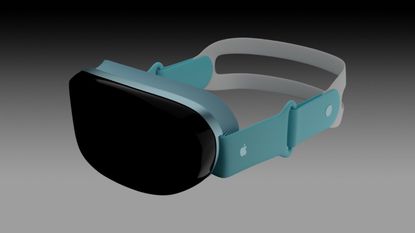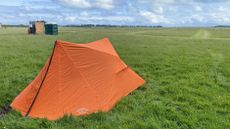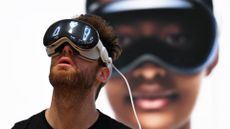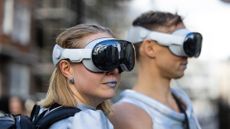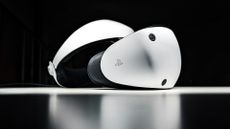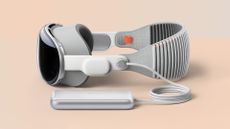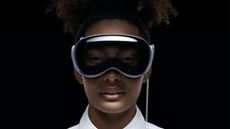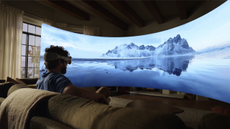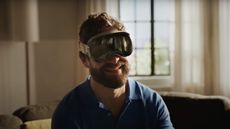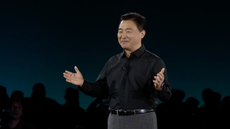The eagle-eyed patent detectives at Patently Apple may have discovered a crucial new feature in the forthcoming Apple AR/VR headset: force feedback to your face.
The patent is for a Gyroscopic Precession Engine for HMD (head-mounted display). In plain English that means a haptic feedback mechanism that's more nuanced than the throbbing you get in your iPhone or Apple Watch, and which could add physical sensations to the audio and visual content to make you feel even more immersed. It sounds amazing.
Feel the virtual breeze on your actual face
According to the patent, the engine could deliver some very realistic experiences such as "creating a sensation of air wave pressure (e.g., from an explosion scene), creating a sensation of centrifugal force (e.g., a bumpy roller coaster ride or car racing), head/neck/hand/wrist exercising (e.g., providing a counter torque to the user's motion), ergo correction (e.g., notify or guide the user to a fix bad sitting or standing posture) and providing reaction force feedback in VR applications (e.g., boxing an object and feeling a reaction force on the hand/wrist)."
I've been writing about Apple patents for a long time and many of them never progress beyond the original filing, but this one feels different: the patent filing shows the system in something that looks very much like it'd work in the headset we're expecting Apple to launch in 2023, and its inclusion might explain why Apple's rumoured four-figure price is so much higher than the PSVR 2.
Virtual reality you can see and hear is pretty amazing. But virtual reality you can feel? If Apple can deliver what the patent promises instead of the lumps and bumps of existing haptic feedback systems, that could be a genuine game changer.
